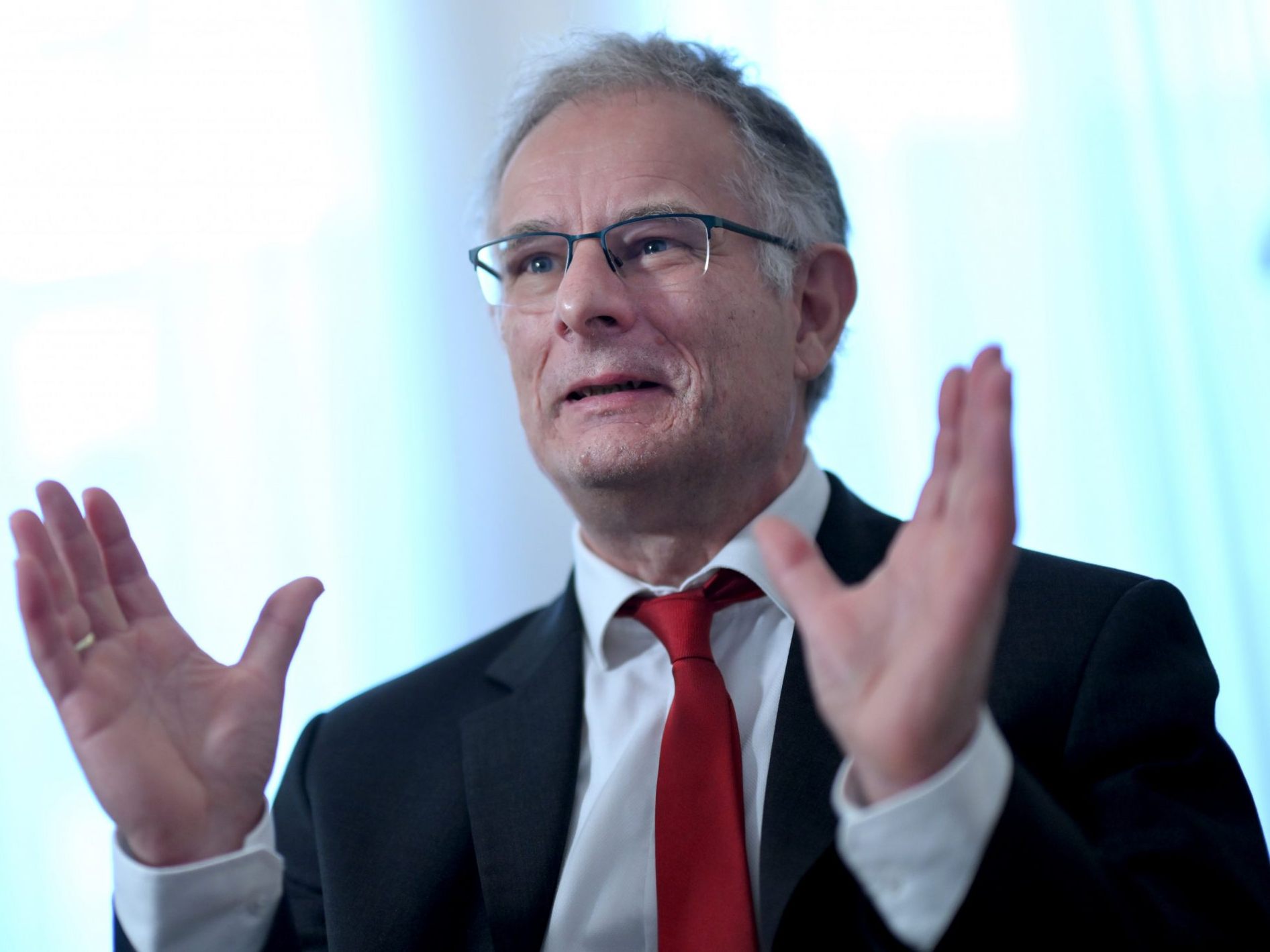"One cannot balance a budget without noticing it"

Finance Minister Markus Marterbauer (SPÖ) prepares Austrians for "two tough years" in light of the difficult budget situation. In an APA interview, he states: "You can't consolidate a budget without noticing it." Marterbauer expresses understanding for the financial difficulties of the municipalities and refers to upcoming discussions on the intra-Austrian stability pact. He expects a reduction in working hours at the level of social partners.
Finance Minister Marterbauer Prepares for "Tough Years"
The Finance Minister remains non-committal on whether more than the agreed 6.3 billion euros should be saved this year if economic forecasts continue to deteriorate as expected. "One or two measures can probably still be taken." However, measures that could dampen employment or investments should not be initiated under any circumstances. Otherwise, one would enter the "vicious circle" where a weaker economy causes a higher deficit, necessitating further savings.
Marterbauer is committed to the government's goal of conducting budget consolidation without EU procedures. However, he does not find such a procedure overly tragic: "The deficit procedure does not dramatically change the economic situation." It would only lead to stronger exchanges with the Commission. For the Finance Minister, the consolidation program is economically indispensable. Because if it does not succeed, the interest burden would continue to rise, and he would prefer to spend the money on education and climate protection rather than on interest.
Population Will Feel Budget Consolidation
One should not harbor any illusions: "Budget consolidation is unpleasant." The effects will also be noticed by the general population. But this is being done to, for example, secure long-term care, enable good education, and prevent poverty.
It is also important to "get the budget consolidation through at all," emphasizes Marterbauer. The 15 percent savings in material costs in the ministries must contribute to this. The Finance Minister confirms that it does not necessarily have to be the case that the same percentage applies to all departments. However, it is clear: "If less is to be saved in some areas, more will have to be saved in others." How his own department will contribute is currently being examined in great detail.
No Opening of the Financial Equalization
The budgetary situation is also causing concern for municipalities and states. In some cases - such as from Styria - there have already been calls to open up the financial equalization: "I believe that is not possible because it is fixed," Marterbauer says. However, he shows clear sympathy for the plight of the municipalities: "I know that their financial situation is very, very difficult." They have very central tasks, for example in climate protection or childcare: "The municipalities are really under pressure."
Marterbauer wants to address this issue in connection with the budget during the reorganization of the Stability Pact, which sets the distribution of debt opportunities between the territorial authorities. The minister does not directly comment on the fact that the hoped-for increase in property tax by the municipalities was waived. However, he emphasizes: "It is obvious that municipal finances need to be reorganized." This will not be a topic until 2027.
Shorter Working Hours at the Social Partner Level
The SPÖ ran for election with the desire to shorten working hours, which is not found in the government package, but already includes the ÖVP's initiative regarding a tax advantage for overtime. Marterbauer also supports the latter point: "We will support the measures of others because we expect our measures to be supported in the same way." Regarding the reduction of working hours, the minister is again convinced that this will increase at the collective agreement level. With a tight labor supply, one will have to increasingly align with the wishes of the employees.
He is pleased that the increased top tax rate will be extended for another five years. This secures these revenues, which are not insignificant. In any case, this measure will be continued every four or five years: "Maybe it will eventually become permanent law." Marterbauer considers it a "reasonable regulation" that one-third of the "cold progression" is used for consolidation: "As long as the budget is not balanced, it is retained and then it is returned."
No Lawn Mower Tactic: Every Subsidy Will Be Examined
Regarding the targeted reform of subsidies, Marterbauer is against using a lawn mower approach and generally adjusting the rates: "My priority would be to look at each individual subsidy." It is necessary to see whether it achieves the goal, if there are other means to achieve the goal, or if it has no effect. Then this subsidy can also be eliminated. Similarly, stronger subsidies would be possible if necessary.
Smoking and gambling will be taxed more heavily in the current legislative period. Other critically viewed areas remain untouched, such as the various alcohol taxes or the diesel privilege. When asked about this, the finance minister says that further tax structure reforms might also address these issues. In any case, the list of environmentally harmful subsidies must be examined: "It makes no sense to provide subsidies that harm the climate."
(APA/Red)
This article has been automatically translated, read the original article here.





